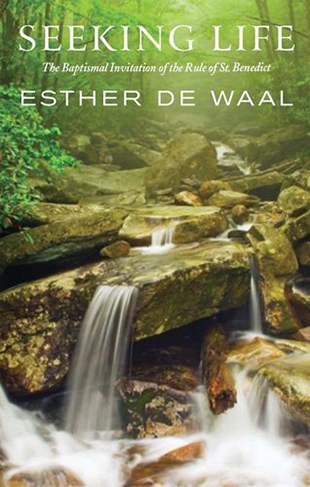Esther de Waal is a popular spiritual writer and author of many books including To Pause at the Threshold and Lost in Wonder. She lives in Herefordshire, close to the border between England and Wales. She spends two months each winter in Washington, D.C., as the Senior Fellow of the Cathedral College, where her teaching focuses on the development of the religious imagination. In the introduction to this book, de Waal celebrates the Rule of St. Benedict which has played such a central role in her life:
"I constantly return to the Rule itself, to a text that is at once familiar and yet always new. It has been at the root of my belief and practice, and it has brought me simultaneously support and encouragement while at the same time presenting me with the prospect of a lifelong journey of continuing and never-ending transformation."
In the year 350, Cyril declared the importance of baptism as a "river of grace." Over the centuries there was keen excitement and anticipation as Easter approached and people were baptized. This ritual was seen as a burial, a resurrection, and a gift of the Holy Spirit. Men and women were submerged in the water three times; they were dressed in white robes as symbolic of putting on the new person.
De Waal turns to the Prologue of the Rule of St. Benedict to see what he says about living one's baptismal vows. Baptism for him is a journey towards the Father who wants to welcome us home. Christians are challenged to forgive the imperfections, flaws, failures, and backslidings of others as God has done for them. They are to open their hearts and be receptive to the light. Other important aspects of a new life in Christ are patience, listening, and continuing to learn. De Waal concludes this book with a collection of readings from three early church fathers on baptism. It ends with the following from St. Augustine:
Do you want to speak the praise of God?
Be yourselves what you speak.
If you live good lives,
you are his praise.
